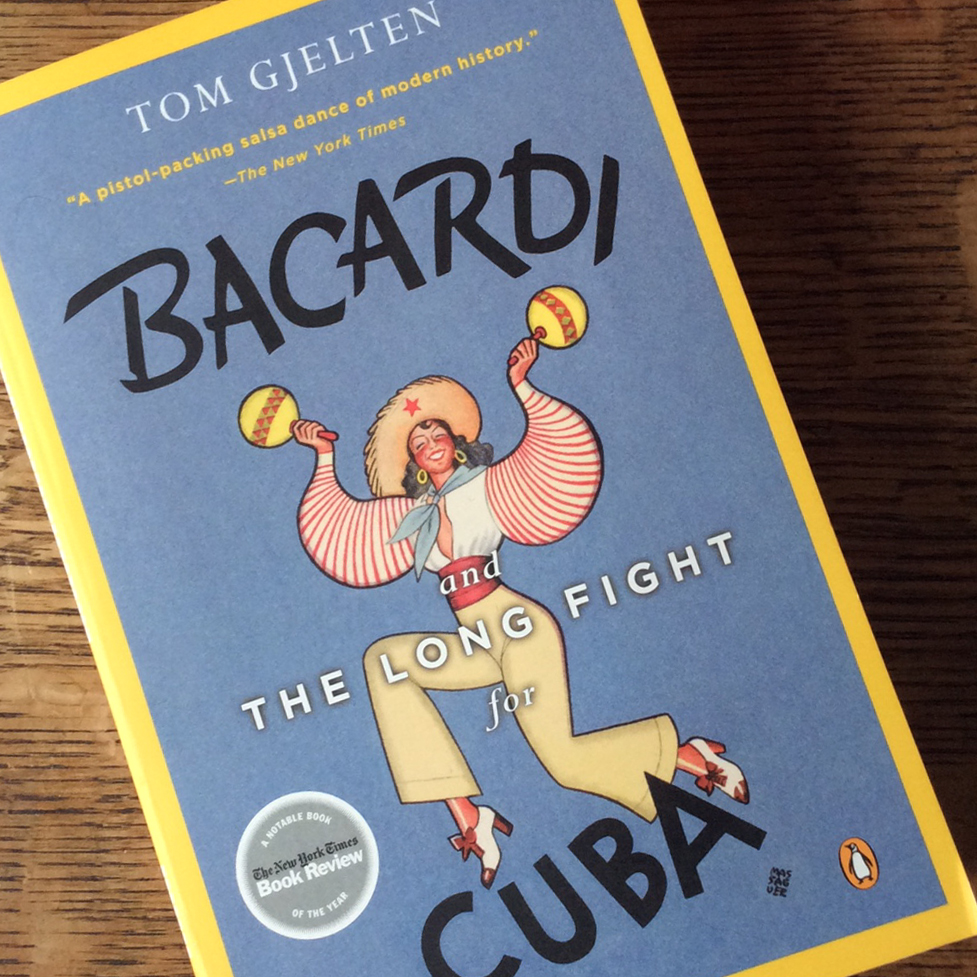
You might be surprised but at Diving & Chillin’ we read. Quite a lot in fact. Our members have extremely varied tastes and when we travel we usually have a mini library between us. From urban fantasy to french literature to history, something for everybody. So from the start I had planned to incorporate book reviews to this site.
I had not planned to tackle serious books or current affairs however. Perhaps because simply and truthfully, if you’ll allow me to paraphrase Ash from Evil Dead 3, when it comes to geopolitics I know jackshit, and Jack just left town. You have been warned.
So how this book popped on my reading radar I have no idea. It did, I read it and I’m glad I did. Bacardi and the Long Fight for Cuba by Tom Gjelten tells the story of the Bacardi family, their arrival in Cuba, and the development of the Bacardi liquor empire (there’s really no other word for it) from humble beginnings to global power. Seven generations later the business is still family owned.
Mister Gjelten’s style is more journalistic than academic which is probably why his book is so eminently readable. It’s an interesting choice to look at roughly 150 years of history through the prism of a single family. It’s almost like something James A. Michener might have written except it’s real. The research is impeccable, with all the things history nerds need, like end notes, sources, and a complete index.
This book is an epic ride through time that touches on individuals as well as greater topics within Cuban society. Relations with the Spanish government, opposition to the Church, slavery and race relations, rum, changing rulers, the mafia, even Hemingway and the Kennedys make an appearance, and of course Castro and the revolution. The scope of subject matter and actors is spectacular, with the Bacardis firmly in the center. The book details the twin, perhaps Janus-like, aspects of the Bacardi family, as businessmen and Cuban nationalists. From the first uprising against the Spanish government in 1868, through the U.S. occupation, to Castro’s revolution and beyond, the Bacardis have been important players in Cuban history.
Reading the book it was clear the author had access to Bacardi archives. No doubt great primary sources, though not necessarily without an ax to grind or at least a good foot to put forward. Even if Gjelten stays diplomatic you don’t feel that he’s trying to pull too many punches. Though I would have certainly liked to know how on one hand the Bacardis could justify selling their rums to the Spanish court, but desired independence from it on the other. Businessmen or patriots? Can you be both? What happens when there’s a conflict between those ends? We don’t know. In my reading, perhaps that is the book’s only failing, or perhaps that just wasn’t part of the author’s way of seeing things.
The crux of the book comes with the 1959 ousting of dictator Batista and his replacement by dictator Castro (I’m being a poor historian right now), which BTW the Bacardi family supported in different ways. Things change drastically after the nationalization of their distillery in Santiago barely a year later, and their exile from Cuba. After that the Bacardi family become very involved in anti-Castro movements. The era’s chairman, Pepin Bosch, even considered privately mounting a bombing raid on a refinery to help cripple the Cuban economy. Nothing came of it, but it does indicate the options that were being entertained. It’s certainly clear that the Bacardi family felt betrayed, not without reason, by the Castro government, and that some subsequent business decisions, like the fight over the Havana Club trademark, were motivated by revenge as much as by financial considerations of market shares. The Bacardi family must have been quite a thorn in Castro’s side, to this day there are groups that call for a Bacardi boycott due to them being “an enemy of socialist Cuba”.
Gjelten is less kind and diplomatic about Fidel Castro and the revolution as a whole. Based on his likewise negative depictions of previous Cuban governments (mostly violence, corruption and cronyism), his views appear more like balanced opinion than personal bias. Also he mentions his (credible) sources, so the painted picture certainly feels real. At the very least it’s without doubt part of the larger, perhaps more complicated, truth.
The history of Cuba is a very volatile subject, it’s a flash point for different political agendas and beliefs. Bacardi and the Long Fight for Cuba certainly manages to contextualizes the issues and events, and bring them back to the human level, where it is perhaps easier to see history play out, to see actions and impacts rather than just focus on the rhetoric.
The book was published in 2008, back then the fall of the regime was seen as imminent, as it had been for about a decade. Today in 2016 Raoul Castro is president (sidebar, he married Vilma Espin, the daughter of Bacardi’s chief accountant and executive assistant to once CEO Enrique Schueg) and though there clearly is a thaw in U.S. Cuban relations, it’s much too early to hoist a Cuba libre that would not be a mentiroso. Last January, according to a Bloomberg article, arbitrary detentions in Cuba rose to a five year high.
The long fight for Cuba certainly isn’t over, but who’s Cuba will it be, how it will come about, and will the Cuban people be the losers or will their lives improve I don’t know, I don’t think anyone does. I certainly can’t pretend to know what’s best for a brave and proud people like the Cubans, but I hope it happens.


One thought on “Por Cuba Libre!”